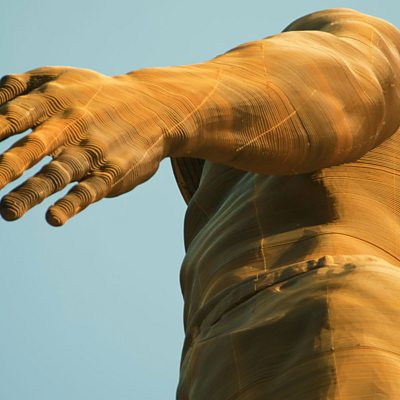Episode details

Available for over a year
Good morning. The word ebenezer is now associated almost entirely with Dickens’ eponymous miser, but it originally meant a stone laid in commemoration. In its first usage in the Hebrew Bible the stone was to act as a sort of aide-memoire, to remind the Israelites of God's faithfulness to them. I first learnt the term from a flatmate who used to buy a piece of sculpture when something big happened in his life and call them his ebenezers. He said he didn't want to forget the things that had shaped him. For we are, of course, forgetful people. In Syria, this week, some stones are being torn down. So-called Islamic State militants have blown up the Arch of Triumph in the city of Palmyra, which was nearly 2000 years old and part of a UNESCO world Heritage site. It's a shame of course, but really, in these times of turmoil, why do I care? I know that for historians and classicists it's a tragedy, but my initial reaction was that these are just stones, interesting, old stones but stones all the same. Put alongside the appalling scale of human misery inflicted by this terrible group, an arch no longer standing fails to have much of an emotional impact. But the ebenezers of my tradition give me pause. They tell me stones are sometimes more than just stones. They are embodiments of stories. And human beings are shaped by our stories, understanding who we are as we learn who we were. Christian Scripture is full of urgings to remember what has come before, through Ebeneezers, songs, rituals, buildings and ultimately the stories that we share. The Christian story, of a loving God at work in the world, subverting power and violence to rescue us, is not an obvious one to hold onto amidst the other stories clamouring for attention. Remembering who we are and where we've come from doesn't always come easy. Isil understands this power of the past, of our memories, for shaping the future. They have claimed that the destruction of ancient sites is motivated by a desire to stop idolatry, and many of them have been temples. But the Arch of Triumph, according to Syria’s chief of antiquities, has no religious significance. Isil want to build a new future, and tell a new story, and so like many totalitarian regimes before them, they are attempting to obliterate the stones and the stories of the past. They want to make it harder to remember what has come before. And we, perhaps, should be protecting, and building, our own Ebenezers, in defiance.
Programme Website